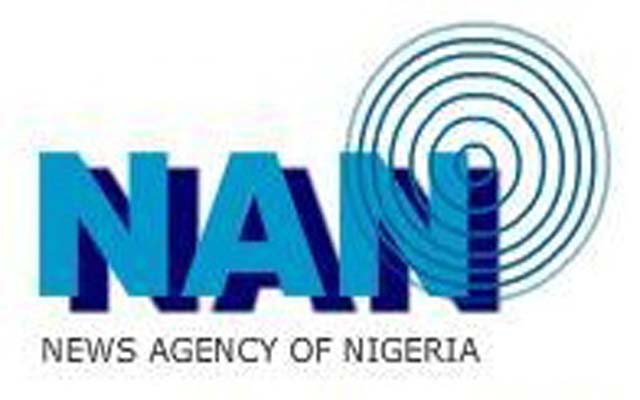The Infrastructure Concession Regulatory Commission (ICRC) was established to drive Public-Private Partnership (PPP) policy as the Federal Government sought to bolster public infrastructure through partnership with the private sector.
The strategic objective of the ICRC is to accelerate investment in infrastructure through private-sector funding by enabling Ministries, Departments, and Agencies (MDAs) to engage the private sector.
This approach is premised on the fact that government alone cannot meet all the infrastructure needs of Nigerians.
The ICRC Director-General, Micheal Ohiani said the outgoing government of President Muhamadu Buhari has utilised the PPP option as it battled infrastructure deficit in the past eight years.
He said this at the 20231st quarter Public-Private Partnership Consultative Forum (3PUCF) and the Inauguration of State House PPP-Unit.
Ohiani said the Federal Government had recorded successes in PPP projects in major sectors of the economy.
He said the sectors include the transportation and port sector, energy and urban sectors, the social infrastructure and special projects sectors.
“We have over 200 PPP projects at different stages of development and procurement. In addition, we have 75 PPP projects at the implementation stage.
“There are also many PPP projects at the inception stage waiting to commence development, and I believe that together, we can do even more in the coming year.
“We hope that more projects will be developed and concluded through the PPP process as we strive to improve our infrastructure and economy”, he said.
Defence Infrastructure
The PPP and Joint Venture Agreement for the Establishment of a Military Clothing Factory Kaduna, Kaduna State to be executed by SUR Corporate Wear as concessionaire under the Defence Industries Corporation of Nigeria (DICON).
The DICON SUR collaboration will span a concession period of 50 years (Oct. 24 2019 to Oct. 23 2069).
It is expected to create over 920 and will be responsible for producing uniforms for the Army, Navy, Airforce, Police, Civil Defence and other paramilitary organisations.
It also includes the concession contract for the design, finance, upgrade, operate and transfer of the Nigerian Correctional Service Shoe and garment factories at Aba in Abia State and the Leather (Tannery) Factory at Janguza, Kano State.
The project is for a concession period of 20 years(Jan.13, 2021 to Jan. 12, 2041). It is a project of the Nigerian Correctional Service (NCoS) as the grantor and Erojim Investment Limited as concessionaire.
The ICRC has taken custody of the contract and is monitoring compliance with the terms and conditions of the agreement.
There is also the concession of integrated digital trunking communications system designed to provide robust, reliable, secured and independent multimedia communication systems (voice, video, and data) for the Nigerian Police Force and other security agencies of government.
The project is under the Federal Ministry of Police Affairs and is for a concession period of 30 years, with the first 36 months designated for rehabilitation work. The project has Messrs. MPS Technologies Ltd as concessionaire.
Information Technology and Communication Infrastructure Sector
In this sector is concession for the Production of ECOWAS Biometric Identity Cards under the Federal Ministry of Interior for a concession period of 10 years from April 16, 2019 to April 15, 2029, with Euphoria Press Limited as concessionaire.
There is also the concession contract for the Design, Development, and Management of a Secured Ticketing solution for the Nigerian Railway Corporation (NRC) Rail Services for the Five stations along the NRC rail corridor between Abuja and Kaduna.
The project is under the NRC and has SecureID Limited as concessionaire for a concession period of 10 years.
The commission has taken custody of these contracts and is monitoring compliance with the terms and conditions of the agreement.
Federal Ministry of Water Resources
One the flagship projects in this sector is the concession for the Service Management of Gurara Phase 1 Multipurpose Dam Facilities with Messrs Gams and Abell Ltd, in Conjunction with Ryzyn Global Inc USA as concessionaire for a concession period of 10 years from Dec. 30, 2019 to Dec. 29, 2029.
It has also seen the concession of Rooftop solar Power,750 kilowatts (KW) solar power system for Federal Ministry of Power, Works and Housing (Power House) building in Abuja with Proserve Energy Ltd as concessionaire and a 10-year concession period from March 4, 2019 to March 13, 2029.
The ICRC is monitoring compliance with the terms and conditions of the agreement for the projects.
Agriculture (Silos- Storage) Infrastructure Sector
Agriculture is one sector that is critical to any nation. The provision of infrastructure required to make this sector to thrive cannot be provided and managed the government alone.
Hence, there was the concession of Grain Storage Facilities for food storage (Silos) in Ado Ekiti, Sokoto, Ogoja, Jos, Ikenne, Gaya, Akure, Markudi, Gombe, Uyo, Liafiagi, Kwali, Kaduna, Jahun, Bulasa, Ibadan, Ezillio, and Igbariam.
The project is under the Federal Ministry of Agriculture and Rural Development with
Agro-Universal Consortium as concessionaire for a 10-year concession period from 2018 to 2028.
The Commission has taken custody of the Concession Agreement and initial operational activities have commenced.
Ohiani said some projects that had received the Federal Executive Council’s (FEC) approvals to enable them achieve Commercial Close included the Central Offshore Waste Reception Facility (OWREF) Concession, Eastern Offshore Waste Reception Facility (OWREF) Concession and a Floating Dry Dock.
He said the projects which were to be executed in the Nigerian Maritime Administration and Safety Agency are projected to generate over 1.1 billion dollars for the federal government during the conversion period.
The director-general said others were the e-custom project of the Federal Ministry of Finance and the National Fire Detection and Alarm System project of the Federal Fire Service under the Ministry of Interior.
He said it also includes the Development of Cassava Bio Ethanol Value Chain project of the Ministry of Finance, Budget and National Planning.
This is in addition to\ the design, construction and financing of a Mixed Development Comprising Residential Houses, Hotels, Recreational Facilities and Office Blocks for Commercial Purposes of the Federal Radio Corporation of Nigeria(FRCN).
Ohiani said the FRCN project is expected to generate N14.9 billion in revenue for the federal government for the concession period.
To boost tourism, FEC also approved the establishment of a Planetarium and Museum at the National Space Research and Development Agency (NASRDA) expected to generate N30 billion for the Federal Government and the private sector investor.
The recent approval by FEC to concession three ports is said to attract an investment of 3.7 billion dollars by the private sector.
They are the renovation of the Burutu Port and the establishment of a Deepsea Port in Delta State, the development of Ondo Port, and the development of the Snake Island Terminal in Lagos.
Ohiani said FEC also approved the commencement of the Park and Pay initiative in some parts of the Federal Capital Territory and the rehabilitation of Police Quarters in Ikeja, Lagos.
FEC also approved the concession of the Nnamdi Azikiwe International Cargo Airport, Abuja; the Mallam Aminu Kano International Airport, Kano, as well as the Expatriate Employment Levy, expected to generate 1.76 billion dollars, 596 million dollars, and 13.4 billion dollars, respectively.
The FEC also approved for concession the establishment of an Aviation Leasing Company and the development of an Electronic Civil Registration and Vital Statistics System (eCRVS), a platform that will effectively keep electronic records of births and deaths registrations.
Ohiani said the approvals by FEC were given following the issuance of Full Business Case (FBC) Certificates of compliance by ICRC.
These approvals are in a bid to inject private sector funds into infrastructure development and boost the nation’s economic growth.
Engaging the private sector managing public infrastructure is a welcome development. However, experts caution that this should be done a manner that it will be of maximum benefit to the citizens, rather than creating loopholes that would make the private sector to exploit the taxpayer.
It is important that ICRC pays heed to a World Bank counsel that:“Private sector will do what it is paid to do and no more than that.
“Therefore incentives and performance requirements need to be clearly set out in contracts. Focus should be on performance requirements that are out-put based and relatively easy to monitor (NANFeatures)




